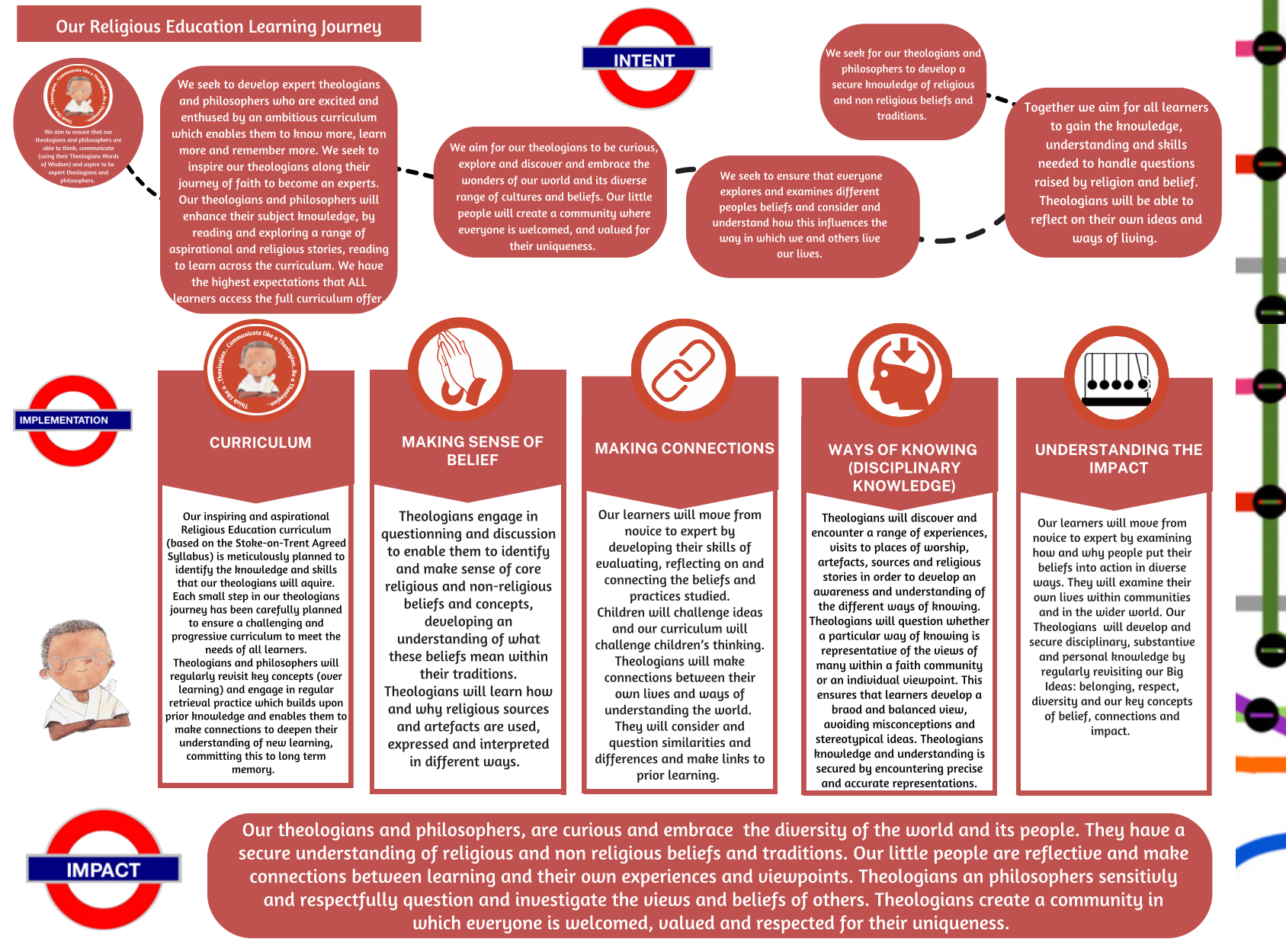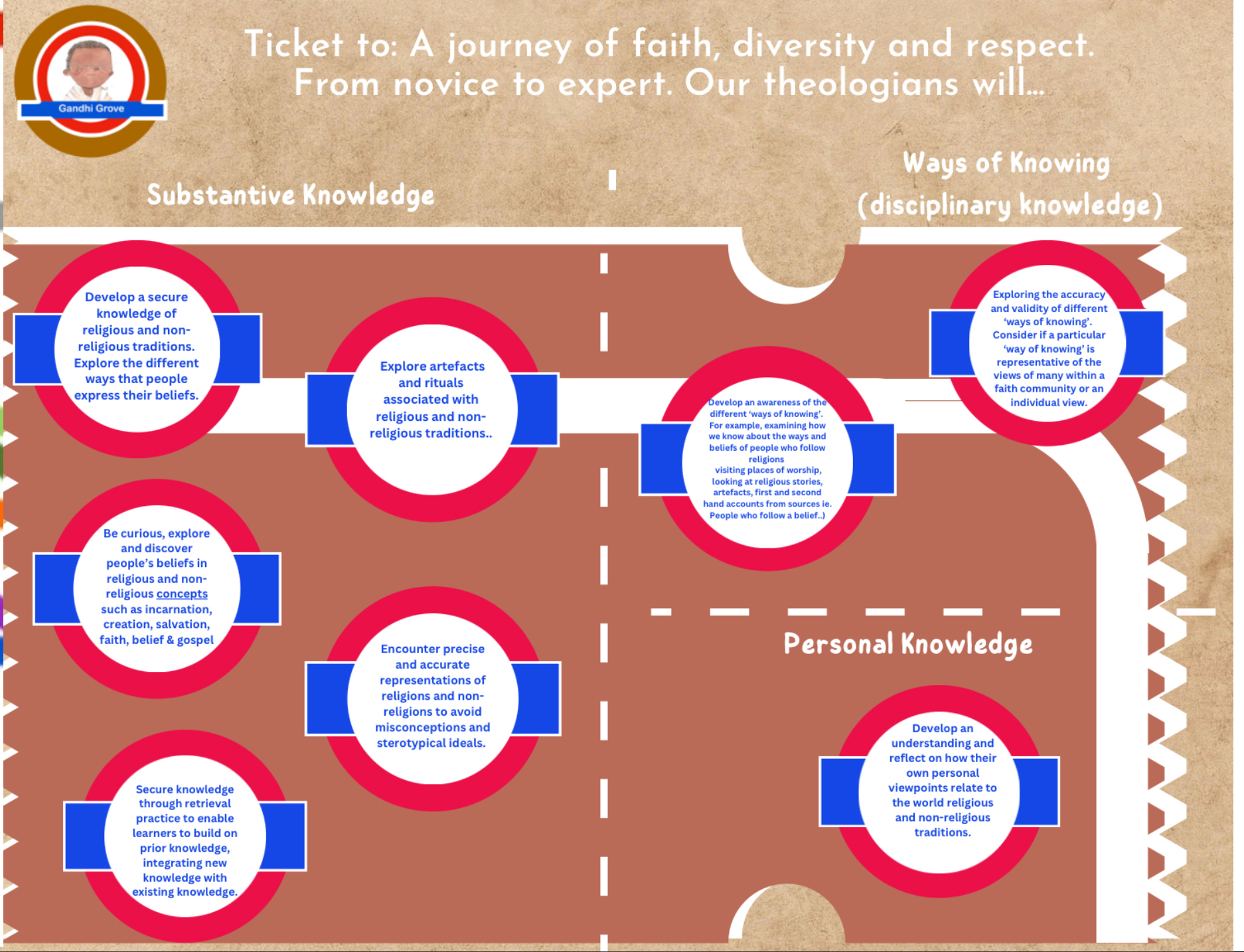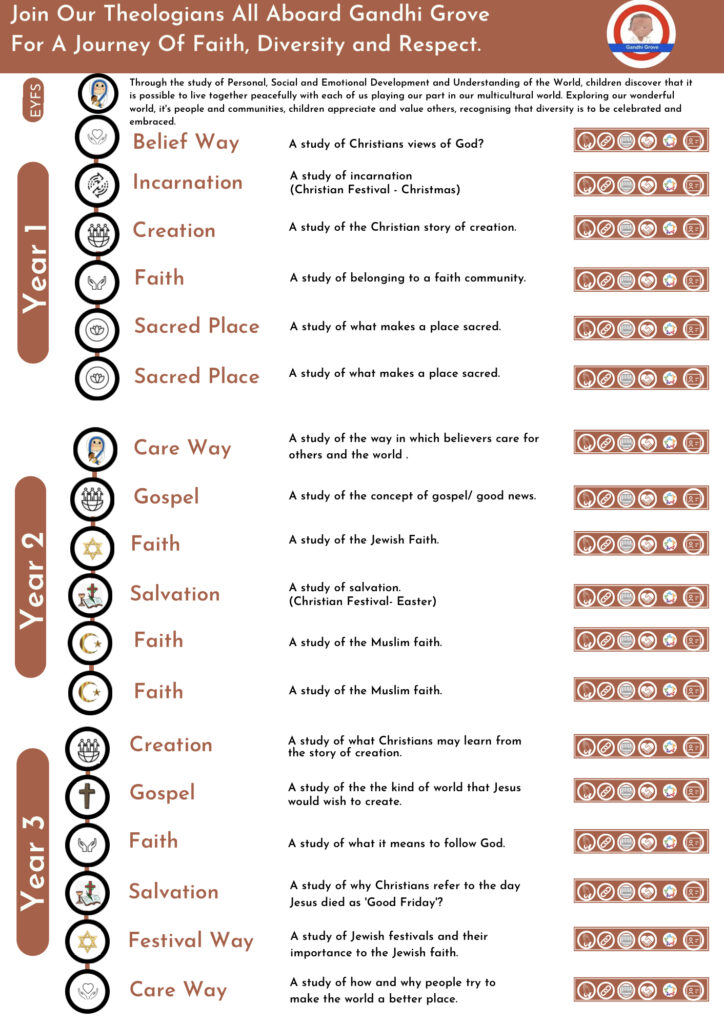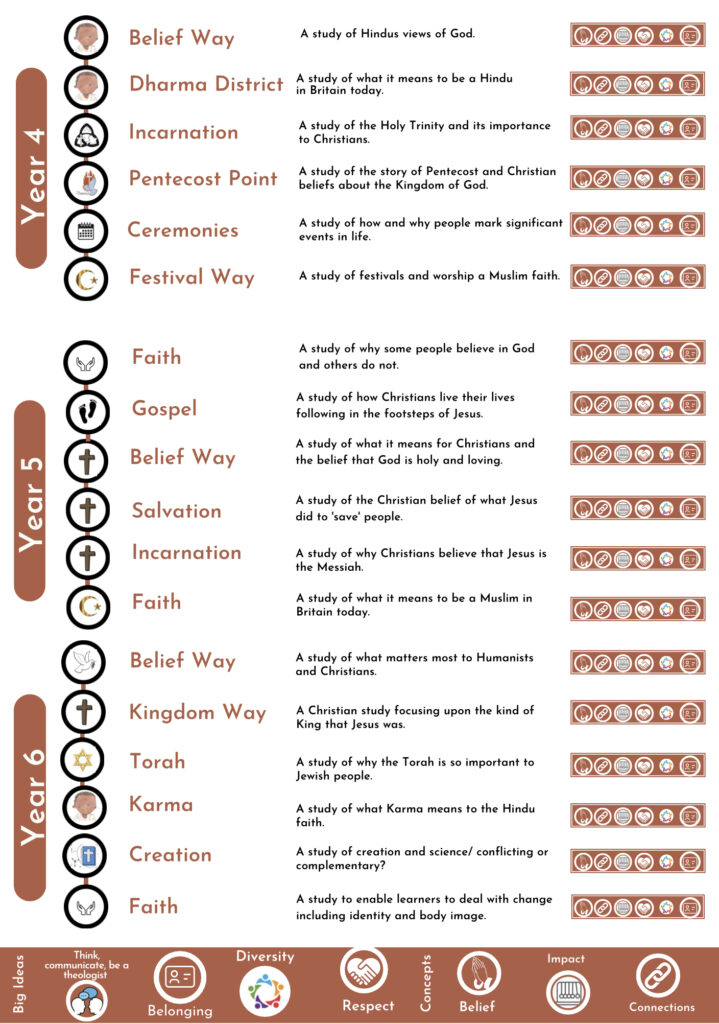Religious Education
Join our philosophers and theologians all aboard Gandhi Grove for a journey of faith, diversity & respect – from novice to expert.
In our diverse society children are enriched by the diversity of cultures and beliefs and need more than ever before, to understand other peoples beliefs, cultures and traditions. Therefore religious education makes a major contribution to children’s intellectual, social and emotional education. At Park Hall our vision is to enable children to question, debate, compare and consider different answers to ‘big’ questions in local, national and global contexts. Our theologists are provided with opportunities to develop skills which will enable them to become critical enquirers into the world of religion. This will be achieved by children being given opportunities to learn about and learn from religions through questioning, exploring and reflecting on religious and non religious points of view. Children will learn to articulate clearly their personal beliefs , ideas, values and life experiences whilst respecting the rights of others to differ. This will enable children to go into the world as curious, independent thinkers, who are able to appraise and consider any views that they are exposed to. At Park Hall Academy our school values are at the heart of everything we do. These are embedded throughout our RE curriculum. RE enables pupils to build their sense of identity and belonging in their community and to learn to live together respectfully in a diverse and complex multi religious and multi secular society.
Our intent, implementation and impact

Let’s explore Gandhi Grove
Our Philosophers and Theologians ticket. An overview of knowledge and skills, experiences and opportunities, Theologians will encounter on their journey from novice to expert.

Our learning journey


